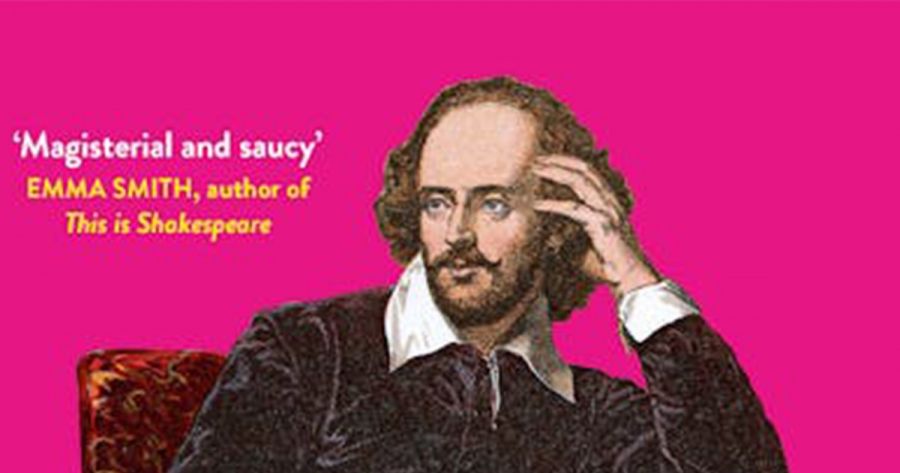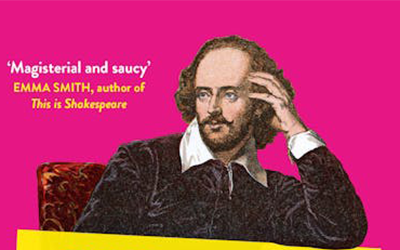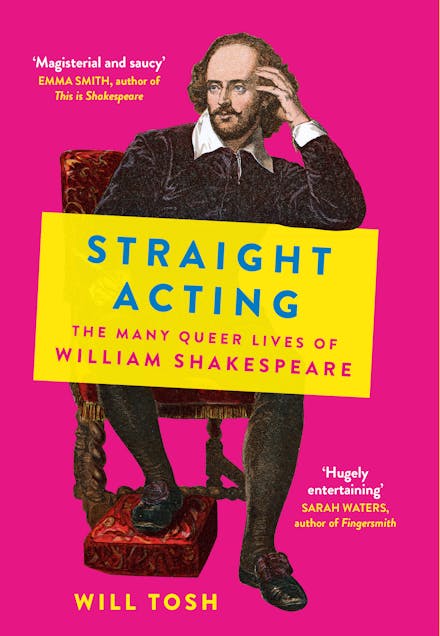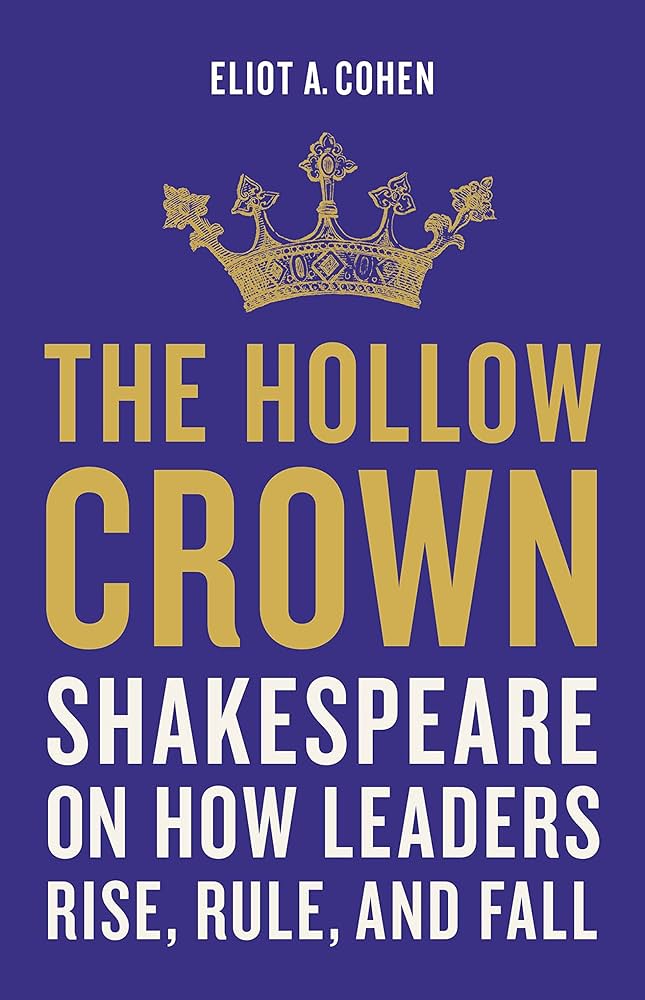
- Free Article: No
- Contents Category: Shakespeare
- Review Article: Yes
- Article Title: Veils and disguises
- Article Subtitle: The everlastingly multifarious Shakespeare
- Online Only: Yes
- Custom Highlight Text:
Shakespeare’s world view – his multiplicity and pluralism, all that teeming vitality crashing up against itself – acts like a tabula rasa even when it is precisely the opposite: one can project oneself onto his work not because it is a blank slate but because it contains multitudes. When it comes to his actual opinions, however – his inclinations and proclivities, his personal, political, and spiritual beliefs – he is notoriously difficult to pin down. One of his greatest skills, after all, is a consummate ability to play both sides of an argument.
- Featured Image (400px * 250px):

- Alt Tag (Featured Image): Tim Byrne reviews ‘Straight Acting’ by Will Tosh and ‘The Hollow Crown’ by Eliot A. Cohen
- Book 1 Title: Straight Acting
- Book 1 Subtitle: The many queer lives of William Shakespeare
- Book 1 Biblio: Sceptre, $34.99 pb, 292 pp
- Book 1 Cover Small (400 x 600):

- Book 1 Cover (800 x 1200):

- Book 2 Title: The Hollow Crown
- Book 2 Subtitle: Shakespeare on how leaders rise, rule, and fall
- Book 2 Biblio: Basic Books, $55 hb, 277 pp
- Book 2 Cover Small (400 x 600):

- Book 2 Cover (800 x 1200):

Will Tosh’s Straight Acting attempts to locate Shakespeare in the context of a queer history too often pushed into the closet. He opens with a prologue entitled ‘Was He or Wasn’t He?’, which sounds more scurrilous than Tosh intends. Shakespeare’s sexuality isn’t treated ‘as a cold case awaiting investigation’, but rather as a shifting point on a continuum that runs from Greek notions of pederasty to contemporary queer culture. Tosh’s primary aim is to illustrate the tricky balancing act Shakespeare navigated in an Elizabethan society that celebrated male beauty and desire on the one hand and codified and restricted it on the other.
Key to this was the concept of amicitia perfecta, the idealised image of male friendship that is familiar as far back as Homer. This allowed the passionate intensity of same-sex partnership to be reframed as something elevated, spiritual, and chaste (even when it clearly included sexual intercourse). Thus we get the rather ludicrous notion of Achilles bringing the entire Trojan war to a halt because his ‘friend’ Patroclus is killed; or, as Tosh bitterly notes, a swath of conservative opprobrium every time a production of Twelfth Night (1602) includes a kiss between men.
Amicitia perfecta acted as a mask or alibi for homosexuality in the Elizabethan age, wrapping it in approved notions from classical antiquity, even as it skirted outright subversion. Marlowe was arguably the most audacious on this front, his Edward II (1592) clearly aligning with the gay king and his ‘favourite’, Piers Gaveston, over the perverse, if technically more conventional, affair between the queen and her lover, Mortimer. Shakespeare would produce his own toppled king three years later with Richard II, toning down the queerness considerably.
While same-sex attraction was permissible only under strict conditions, gender itself was remarkably fluid. Straight Acting is richly detailed on the tradition of boys playing women on stage, the implications of which Shakespeare exploited with great daring – most notably in the high comedies As You Like It (1599) and Twelfth Night. Tosh vividly brings to life a moment in the former play that thrums with meaning, and must have had a powerful effect on the original audience, the first to set foot in the newly built Globe theatre. Celia admonishes her friend Rosalind for dressing as a man – ‘you have simply misused our sex for your love-prate’ – and calls on her to be stripped naked, to ‘show the world what the bird hath done to her own nest’. Given that the part was played by a young man playing a woman playing a man (playing a woman, at one dizzying point), the suggestion is of gender as a series of veils or disguises, a mere construct.
Straight Acting eventually gets snagged on a lesser known poet who may or may not have had an influence on Shakespeare: Richard Barnfield. His pastoral poem The Affectionate Shepherd (1594) is a blatantly gay romance between a shepherd and a ‘fair boy that had my heart entangled’, suggestively called Ganymede. Barnfield’s brief notoriety and eventual fall into obscurity is diverting, but less influential on Shakespeare than, say, Montaigne, who had his own amicitia perfecta with Étienne de La Boétie and warrants barely a mention here. Tosh’s interest in Barnfield feels like an unnecessary distraction, especially when the final, fascinating section of Straight Acting deals so brusquely with the coronation of James I, a key queer figure who changed England’s sexual mores in complex ways.
Eliot A. Cohen’s The Hollow Crown is a tighter and more compelling book, perhaps because it limits its focus and ambitions. Cohen revisits a theme Stephen Greenblatt tackled in Tyrant (2018), namely Shakespeare’s astute interrogation of leadership and power. Where Greenblatt ranged wider and folded in more biographical detail, Cohen restricts himself to a handful of plays and deals only briefly with their historical context. His interest is in Shakespeare’s kings – the anointed and usurping, the reluctant and the grasping, the ineffectual and the murderous – and the lessons we can extrapolate from their reigns. He also draws cogent real-life parallels with historical figures from Winston Churchill and Charles de Gaulle to Benedict Arnold and George Washington.
Cohen’s background gives him a unique perspective on leader-ship and power. He is the Arleigh A. Burke Chair in Strategy at the Centre for Strategic and International Studies, and has been dean at Johns Hopkins University’s School of Advanced International Studies. He also worked in the US Department of State, where he witnessed the foibles and fortes of international leaders first-hand. Cohen is a shrewd reader of the texts, alive to the complexities of motive and action, most notably in the history plays – his assessment of the Henriad, especially his cold-eyed appraisal of Hal/Henry V, is among the best I have read. If he is less persuasive with the major tragedies, perhaps it is because those plays are complicated by so much more than the themes of governance and rule.
The Hollow Crown is organised neatly into three parts: acquiring power, exercising power, and losing power. Key to the first section is Henry IV, who, as Henry Bolingbroke, employed a Machiavellian ruthlessness – and ‘more than a hint of brutality in reserve’ – to his toppling of Richard II, but who spends the majority of his own reign worrying about his heir, the future Henry V. Cohen demonstrates Henry’s calculated pragmatism curdling into pride and vanity, a character ideally suited to taking power but poorly equipped to wield it. He gets Henry’s oily sanctimony, that way he has of masking his rank ambition even from himself. Of course, it seeps out regardless. Here he is confiding the path to power to his son: ‘And then I stole all courtesy from heaven / And dressed myself in such humility / That I did pluck allegiance from men’s hearts.’ Cohen is clear. ‘Again, the mask slips: his humility was dressing, his courtesy stolen, and his allegiance snatched.’ That prince Hal will go on to employ similar techniques, feigning friendships, twisting rhetoric, and blithely sacrificing lives for his own petty politics tells us something frightening about leadership itself – a ruler’s personality, their value systems and moral inclinations, are no bulwark against the coruscating effects of power, its inherent corruptibility.
Certain characters are so well elucidated in The Hollow Crown that they seem changed forever. Henry V’s cynical nationalist fervour and opportunistic populism make past performances of the role – notably by Laurence Olivier and Kenneth Branagh– feel like naive propaganda tools. Antony in Julius Caesar (1599) seems less a beloved rhetorician and more a bloodthirsty psychopath under Cohen’s keen analysis. Others, Macbeth and Lear in particular, are less satisfyingly rendered, the arc of their tragedies too vast and multi-layered to be reduced to lessons on leadership. Cohen’s reading of The Tempest (1610-11) is touching but too brief; it is, after all, a play on the theme of governance, and holds poignant resonances for the current events in Washington.
Perhaps this is the greatest lesson from both The Hollow Crown and Straight Acting: that Shakespeare will always have something to teach us, whether it be salient warnings for our political heroes as much as our enemies, or joyful reminders of our shared humanity when social and sexual conventions morph into new expressions of love. Even better, these books suggest future stage productions – an all-trans As You Like It, for example, or a realpolitik Henry V. Because, while we keep moving, while we keep approaching him from different angles, Shakespeare will always refuse to be pinned down.


Comments powered by CComment